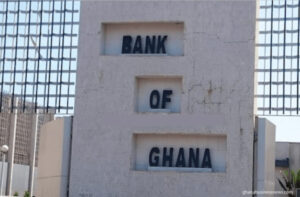 |
| Bank of Ghana |
The closure of the indigenously owned uniBank continues to raise eyebrows as it becomes increasingly clear that best practices were not followed and that the decision might have had other motivations aside simply saving the financial health of the Ghanaian economy.
As already made clear in an impressive article by Mark Kofi Poku, the Bank of Ghana violated several laws of natural justice in their closure of uniBank, ranging from not taking their side of the story into consideration, refusing to pay the substantial debts the government owed the bank which would on their own have made the bank financially healthy and even failing to take into consideration the fact that the bank procured a loan from an international source which would have saved it as well.
Aside all these injustices, the report which served as the basis for the BOG collapsing uniBank — authored by KPMG — has been shown to be flawed, not on the basis of a finding by any external body but by the admission of KPMG themselves.
The report, which GhanaCelebrities.Com has sighted, shows a huge, fat disclaimer by KPMG in its foreword that their report is not a complete appraisal of uniBank, that they did not follow international best practices in compiling it and that they did not verify the information contained wherein.
“…We have not sought to verify information contained herein or performed procedures necessary to enable us to express an audit opinion on any of the financial or non-financial information contained in this report. Accordingly, we cannot and do not express an audit (or similar) opinion on the information contained in this report.” the report says, in part.
“We have not obtained formal confirmations from employees of the Bank that they have made available to us all significant information relevant to our report which they have knowledge of. Accordingly, we are unable to determine the extent to which information and explanations provided to us are complete and accurate and the report should be read in that context,” it said.
| UniBank |
Finally, KPMG also made it clear that the Bank of Ghana was not to provide the document to any other party and not to use it to take any further decision, which they made sure to state they would not be responsible for.
“…Therefore you should not, without our prior written consent, refer to or use our name or the report for any other purpose, refer to our report in any investment memorandum, circular or any other document, or make it available or communicate it to any other party.”
So on the basis of this self admittedly flawed report, which its authors themselves described as not fully accurate and vowed not to take any responsibility for its fallout, the Bank of Ghana took the decision to collapse uniBank. The demands of KPMG also makes it clear why the BOG did not provide a copy to uniBank as per custom so they would be able to properly defend themselves.
The revelations in the leaked report, coupled by the huge questions raised in the feature authored by Mr Poku and many others, make it clear the Bank of Ghana acted at best in extremely bad faith, at worst with a sinister agenda, to shut down uniBank, which was one of the only indigenously owned banks in a sector dominated by foreign-owned multinationals.
Considering the central Bank was doling out cash willy-nilly to other banks in worse situations than uniBank — their refusal to hear the shareholder’s side of the story, take into consideration the simple steps needed to restore the bank and making the decision to close the bank on the basis of a flawed report — all point to a determination to reach a desired outcome already set by the Bank of Ghana at the beginning of the process.
Simply put, as aptly phrased by Poku in his feature — the Bank of Ghana was indeed a judge and prosecutor in its own court.
Read the full report below
Source: ghanacelebrities.com
Esportedasorte, now that’s a name that catches the eye! Leaning into the Esport action, I see? Did some CS:GO betting and things were smooth and intuitive. Good variety of matches to chose from. Give it a visit if it interests you : esportedasorte